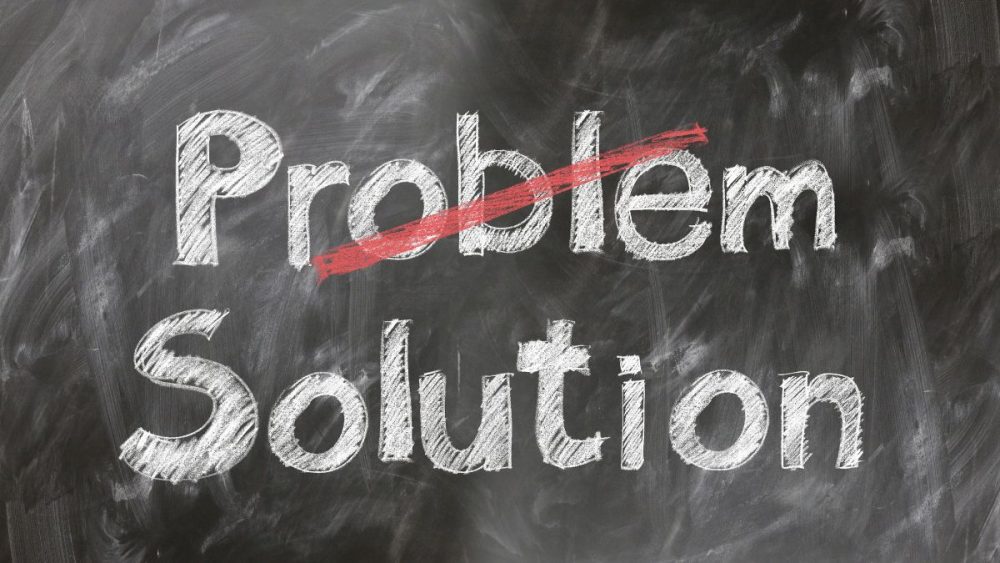Working with a digital marketing agency can be a big step for any small business. The right partner saves you time, brings in new skills, and helps your business grow faster. But many small business owners run into problems when working with digital marketing agencies or freelancers.
Constant Contact’s 2025 Small Business Now report shows that fewer than one in five small businesses feel very confident in their marketing. This lack of confidence often carries over into partnerships with digital marketing agencies, where doubts and frustrations can grow.
Missed deadlines, poor communication, rising costs, or a lack of real results can all make you question whether the marketing partnership is worth it.
In our earlier guides, we looked at How to Choose the Right Digital Marketing Partner and How to Build a Successful Marketing Partnership.
This article takes the next step and explains what to do when problems appear, how to fix them, and how to understand when it’s time to walk away.
Common Problems With Digital Marketing Agencies
Understanding what’s going wrong is the first step to fixing it. Here are the most common problems small businesses face when working with digital marketing agencies or freelancers, and what you can do to fix them:
Results Are Slower Than Expected
This is one of the biggest frustrations. You sign up expecting enquiries to flood in within weeks, but enquiries don’t increase and your website traffic looks the same. It’s natural to worry that nothing’s happening or that your marketing partner isn’t pulling their weight.
The truth is some results take time. Paid ads can show quick wins, but strategies like SEO or content marketing usually take three to six months before they gain traction. What feels like a lack of progress may actually be the normal pace of building something sustainable.
What to do: Go back to the goals and timelines you agreed at the start. Were they realistic? Ask your agency to explain exactly what they’re working on and what early signs of progress you should be seeing. Small wins like higher search rankings, more engagement on your site, or steady social media growth usually show up before sales start to rise.
If you see no movement at all after a reasonable time, dig deeper. At that point, it’s fair to question whether the strategy itself needs to change.
Marketing Costs Are Creeping Up
It’s frustrating when your marketing spend rises faster than you expected. You agree on a budget at the start, but a few months in you’re being asked to approve extras — new tools, additional ads, or one-off campaigns. Suddenly, what once felt manageable starts to feel like a strain.
Not every increase means overspending, though. Sometimes additional costs are genuine — for example, running a seasonal promotion or testing a new channel. The real problem is when these changes aren’t explained clearly. If you don’t understand why extra money is needed, it’s easy to see them as hidden costs.
What to do: Ask for a breakdown of where the money is going and how each item links to your business goals. Once you have this, set a monthly cap and ask your agency to prioritise within it. A reliable partner will focus on what delivers the most value, not just on spending more. If they can’t work within your limits, you may need to revisit either your goals or the partnership itself.

Communication Has Broken Down
Maybe your partner takes days to reply, misses scheduled calls or meetings. Whatever the reason, you start to feel ignored and wonder if your business really matters to them.
Sometimes, though, the problem is about expectations. If you never agreed on how quickly you should get replies or how often you’d speak, your partner may think they’re being responsive and what they’re doing is normal, while you feel left waiting.
What to do: If you haven’t already, agree on the basics now. Decide how often you want updates, the best way to reach each other, and how fast urgent queries should be answered. Put this in writing so both sides know what’s expected. If you’ve set these rules and they’re still being ignored, raise it directly and give them a chance to put things right. If nothing changes, the lack of communication is a genuine problem, not just a misunderstanding.
You Feel Left in the Dark
One of the most common problems when working with digital marketing agencies is feeling left out of the loop. They do reply to your calls, but you’re not sure what’s happening, updates are vague, or you don’t have access to the accounts being used to promote your business.
In reality, the line between normal practice and poor service depends on what was agreed at the start. Some activities, like running paid campaigns, may need regular updates. Others, like SEO, might only justify a monthly review. Every agency and every business owner works differently, so the key is whether the arrangements you agreed are being respected.
What to do: If you never set clear expectations for updates or reporting, put a plan in place now. Decide how often you want updates and in what format — short weekly check-ins, monthly reports, or access to a live dashboard. Make sure you hold admin rights to your own accounts, such as Google Ads, social media, and analytics. These accounts should always remain under your ownership. If your partner resists giving access or avoids explaining their work, it moves beyond expectations and becomes a red flag.
Reports Are Confusing or Irrelevant
Another issue small businesses often face with digital marketing agencies is receiving reports that look impressive but don’t actually help. Pages of charts and jargon may look professional, but without a clear link to enquiries or sales they’re not very useful.
Traffic numbers are important — they show whether your campaigns are bringing people to your website. But traffic alone doesn’t tell the full story. If visitors don’t take the next step, such as making an inquiry or a purchase, you won’t see the impact on your bottom line. That’s why reports need to connect both sides: how many people you’re reaching, and what those people are doing once they arrive.
What to do: Ask your partner to explain results in plain language and link them to your goals. A useful report should show both the reach of your marketing (visits, clicks, impressions) and the outcomes (calls, bookings, sales). If expectations about reporting weren’t set at the start, agree on a new format together. But if you’ve asked for clarity and the reports remain confusing or irrelevant, it’s a sign you’re not getting the transparency you need.
They Don’t Seem to Understand Your Business
Few things are more frustrating than feeling like your marketing partner doesn’t really get what makes your business unique. Their ads sound generic, their content doesn’t reflect your tone, or their suggestions don’t fit how you actually work. When this happens, it’s easy to feel like you’re wasting money with someone who doesn’t understand your world.
But not every mismatch means they’re out of touch. Marketing often involves testing new approaches, and these can look unfamiliar at first. What feels “off” to you might actually be your partner trying ideas aimed at a different audience or a longer-term goal.
What to do: Go back to basics together. Walk them through your customers, competitors, and what sets your business apart. Share real examples – the questions customers ask, the feedback you receive, and the products or services that sell best.
Then ask your partner to reflect this back to you. It could be a short summary, a set of customer personas, or a simple campaign outline. If they can explain your market and goals in their own words, you’ll know they’ve understood.
If their work still feels off-target after this, it’s no longer just a matter of perception. At that point, it’s a sign of poor fit, and you’ll need to decide whether further effort is worthwhile or whether it’s time to move on.

Innovation Has Stalled
Consistency matters in marketing. If something is working, it makes sense to keep it running.
But there’s a difference between steady performance and simply going through the motions. If your partner never tests new ideas, never adapts to changes in the market, and never brings fresh thinking to the table, results will eventually flatten out.
That said, not every quiet spell means a lack of innovation. Sometimes a campaign is still performing well, so your agency focuses on maximising it rather than changing things for the sake of it. The key is whether they can show you how they review results and spot opportunities to improve.
What to do: Ask your partner what they’re testing, how they stay up to date with changes in digital marketing, and where they see room to grow. You don’t need a brand-new strategy every quarter, but you should see signs of learning and refinement. If there’s no sign of progress, or your partner resists new ideas altogether, it may be time to look for someone with more energy and vision.
High Staff Turnover
Another common problem when working with digital marketing agencies is staff turnover. You build trust with someone who understands your business, only to find they’ve moved on. Suddenly you’re repeating the same background information to a new account manager and momentum slows.
Some turnover is normal. People change jobs in every industry. The real issue is whether the agency has systems in place to protect you when that happens.
What to do: When staff changes occur, ask about the handover process and make sure your campaigns and goals are properly documented. Request access to the key accounts and files linked to your business so nothing gets lost when people leave.
If turnover becomes a pattern and you’re constantly starting again, it may point to deeper issues inside the agency. At that point, you’ll need to weigh up whether the disruption is worth it or if a smaller, more stable team — or even a freelancer — would be a better fit. If issues like these keep repeating after you’ve tried to address them, it may be a sign the partnership can’t be fixed.
Knowing When It’s Time to Move On
Sometimes, the problems when working with digital marketing agencies or freelancers can’t be fixed. If you’ve already tried solutions and nothing has changed, it may be time to move on.
When fixes don’t work
If you’ve raised your concerns clearly, given feedback, and allowed 60–90 days for improvement, you should start to see progress. If nothing changes, the partnership is unlikely to recover.
When trust has broken down
Trust is the base of any working relationship. If you’re second-guessing updates, double-checking every number, or feeling anxious about what’s true, the foundation has already collapsed.
When you’re doing more than they are
If you find yourself driving strategy while your agency only follows instructions, the value is gone. A strong partner should take initiative and bring new ideas, not just wait for direction.
When the cost of staying is higher than leaving
If you’re spending more time managing problems than seeing results, or if poor performance is holding back your business, the partnership is costing you more than it gives.
When your goals have changed
Sometimes the agency hasn’t failed, but your needs have shifted. If your business has grown or changed direction and their expertise no longer matches, it’s time to look for a better fit.
Immediate deal-breakers
Some situations require action straight away:
- They refuse to give you access to your own accounts
- Their work has damaged your brand or reputation
- You discover dishonesty about activities or results
- They miss multiple deadlines without explanation
- They break contract terms or professional standards
How to End the Relationship Professionally
If you’ve decided the partnership can’t be fixed, the way you leave matters. A smooth exit protects your business and keeps your reputation intact.
Start by reviewing your contract. Check how long the terms run and whether there are penalties for leaving early. Knowing this in advance avoids surprises and helps you plan your next steps with confidence.
Next, secure your assets. If you haven’t already, make sure you have admin access to all accounts created for you – social media, Google Ads, analytics, your website, and hosting. Collect creative files such as logos, photos, and videos. Remember: these were built for your business, and you’ve paid for them. They belong to you, not the agency.
Give proper notice. Most agreements ask for 30 days, and even if yours doesn’t, it’s a fair standard. Notice gives both sides time to prepare and keeps the exit professional.
When you explain your decision, keep it clear and businesslike. Thank them for the work they’ve done, but don’t get drawn into arguments. Leaving on good terms is always better than burning bridges.
Finally, plan for continuity. Don’t let your marketing stall while you change partners. Line up your next agency in advance, or prepare to handle some tasks in-house during the handover.

Moving Forward: What You’ve Learned
Ending well protects your business today; reflecting on the experience helps you choose better tomorrow.
Every difficult partnership has lessons to offer. Instead of treating it as a setback, use it as preparation for your next relationship. Think about what worked, what didn’t, and refine your selection process. Clearer expectations on communication, reporting, and budget limits at the start make future partnerships stronger.
To avoid repeating the same problems with digital marketing agencies, make sure your own processes are just as solid as your partner’s. The more transparent you are from the beginning, the less likely issues will grow later on.
Many small businesses work with more than one agency or freelancer before finding the right fit. Each step brings you closer to a partnership that lasts — one where you feel supported, confident, and free to focus on growing your business.
Final Thoughts
Problems with digital marketing agencies or freelancers can be frustrating, but they’re not the end of the road. Many issues improve with clearer communication, better goal-setting, and a willingness to work through challenges.
The important thing is knowing the difference between a rough patch and a failing partnership. The right partner should give you clarity, confidence, and steady progress towards your goals.
If you’re dealing with problems in your current marketing relationship or you’re ready to explore a fresh start, Social Matrix can help. With more than 15 years’ experience supporting small businesses across different industries, we know what works and what doesn’t. We believe in building honest, practical partnerships based on clear communication and measurable results. Contact us today to explore how we can support your business growth with a marketing partnership that actually works.

